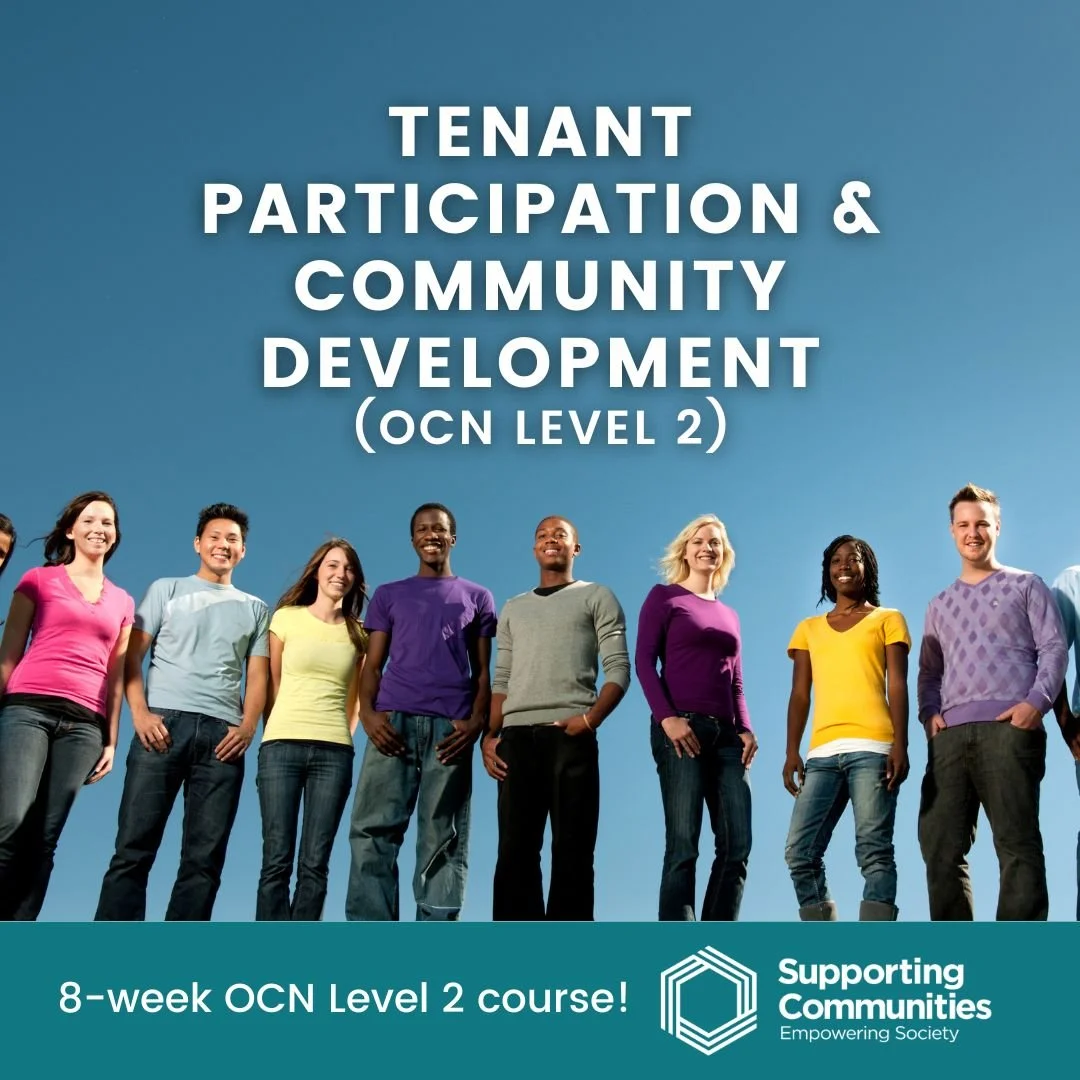The Tenant Participation Strategy NI...5 years on
/by Sheenagh McNally , Head of Corporate Services
Prior to the introduction of the Tenant Participation Strategy NI 2015 – 2020, it is fair to say that we had some fine examples of engaging and involving tenants in the delivery of housing services within Northern Ireland, however, it is equally fair to say the approach was not applied consistently across the sector. The Tenant Participation Strategy NI launched in January 2016 has been the catalyst to focus landlords’ attention on how they engage their tenants in a truly meaningful way.
As we prepare to consult on a new strategy, it is important to reflect on the progress made over the past five years. Supporting Communities is privileged to comment as the Independent Tenant Organisation with experience working closely with the Housing Executive, one of the biggest social landlords in the UK, and with the Housing Association sector via our trading subsidiary Empowering Communities.
We have witnessed the housing association sector make impressive strides in developing their Tenant Participation Strategies, some for the first time. In his foreword of the original strategy, Minister Morrow wrote, "I want this strategy to challenge all social landlords to increase the extent and effectiveness of tenant participation in Northern Ireland." I think we can certainly say this has been accomplished! There are some excellent examples of strategies where the tenants have clearly played a pivotal role not only in developing but also in implementing and monitoring their respective strategies. Supporting Communities use these examples as good practice models when we promote tenant participation both at home and further afield.
Over the last five years we have seen housing associations employ dedicated staff, invest in training for staff and training to increase the capacity and confidence of their tenants, approve Tenant Participation budgets, refresh existing engagement structures, create new structures, embark on service improvement exercises (scrutiny), tenant-led inspections, Customer Journey Mapping, Mystery Shopping exercises, Participatory Budgeting, and so much more!
As part of our Independent Tenant Organisation role, we have established the Housing Policy Panel with tenant representation from across the social housing sector in Northern Ireland. The Housing Policy Panel has a vital role in assisting the Department for Communities frame the new Tenant Participation Strategy and has spent the last 18 months visiting various social landlords to learn about their engagement practices, so they are in a prime position to guide and advise on the next iteration of the TP Strategy for Northern Ireland.
The Next 5 Years
The work of the past five years has gone a long way to embedding a culture of tenant participation within our social landlords' psyche. The next Tenant Participation Strategy should aim to take things up a level and strive for even more ambitious outcomes, such as:
More tenant representation at the board level
A greater emphasis on digital engagement (this will mean more investment in connectivity, hardware, and training)
Devising engagement practices that include everyone, including those in General Needs, Independent Living and Supported Housing schemes
Researching empowerment models. We need to assess how tenants in Northern Ireland can get involved in managing their homes, and
Tenant Participation Accreditation for social landlords
Last year, Supporting Communities launched an accreditation scheme, which we see as a litmus test for TP practices. It is an assessment framework designed to provide social landlords with an objective measurement of their tenant participation activities through three standardised accreditation levels: bronze, silver, and gold.
We encourage the Department for Communities to endorse our TP Standards and Accreditation in the next TP Strategy. It will allow for a more structured, managed benchmarking of tenant participation in Northern Ireland with a clear path to help landlords continue to improve.












